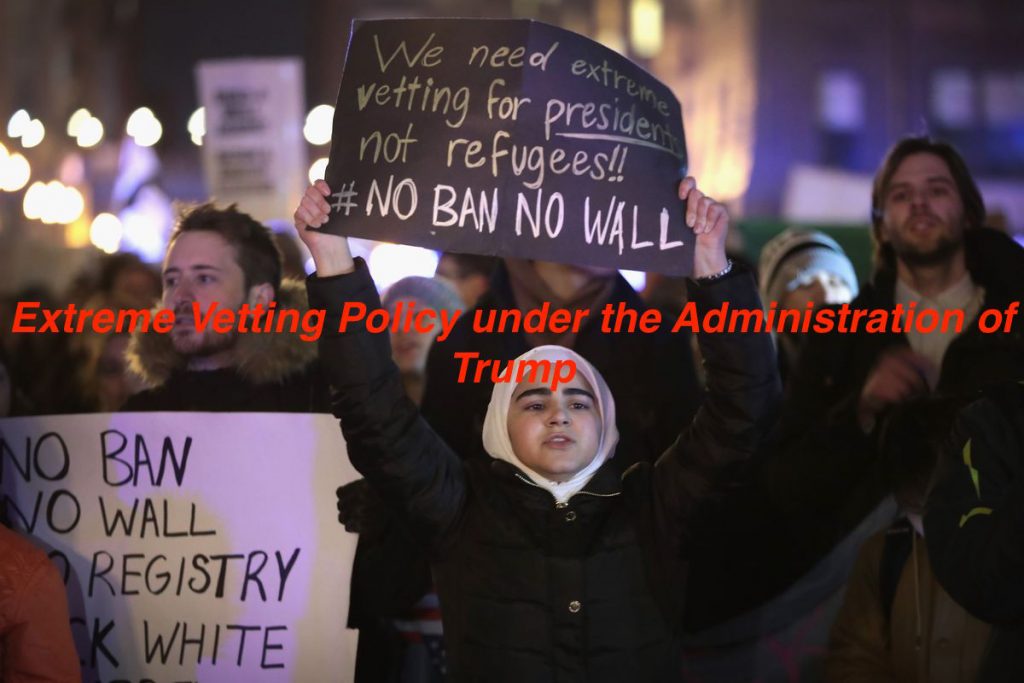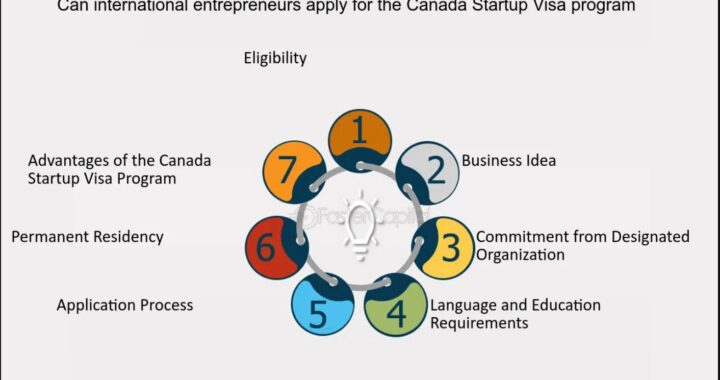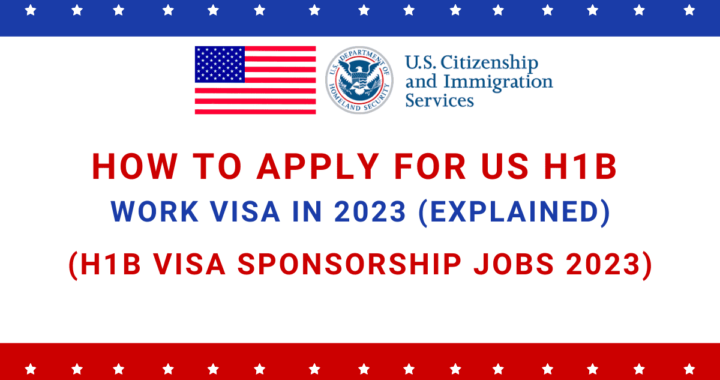Extreme Vetting Policy under the Administration of Trump has tightened the Controls on Immigration from Muslim Countries

Extreme Vetting Policy under the Administration of Trump makes Visa issue difficult for citizens from Muslim Countries
Donald Trump’s government has proposed an immigration ban for the visa applicants. This prohibition includes the suspension Syrian refugees program for at least 120 days, and entry of people from seven Muslim countries can be banned indefinitely under Trumps administration. Donald Trump says that this ban is not about any religion in particular, in fact, it has been implemented keeping the safety and security of the country in mind. Thus, Extreme Vetting Policy under the Administration of Trump has tightened the Controls on Immigration
This policy has been termed as “Extreme Vetting.” Now the question is what is ‘vetting’ and how does it impact the people?

Vetting is a procedure to conduct the background check of a person along with many other investigations. It involves confirming of a particular individual’s character through references, his computerized and social media database check, his employment information, etc.
More on Extreme Vetting Policy under the Administration of Trump has tightened the Controls on Immigration from Muslim Countries
As per the “extreme vetting” policy, the rules for immigration have been tightened for the visa applicants. Immigration department under the administration of Donald Trump has come up with the new set of questions for the visa applicants according to which these candidates would require giving their biographic information for last 15 years. It also includes the information of the person’s social media accounts for the past five years. This questionnaire was passed in May this year.
Visitors from European Countries affected too with new USA Vetting Policy
Similarly, the tourists from the Europe and other countries would also require providing information regarding their financial data, social media passwords as well as the contacts in their mobile phones under extreme vetting policy.
This “extreme vetting” policy system would rigorously evaluate the visa applicants to ensure the national security and terrorism ineligibility. The new application form would require the visa candidate to deliver the following details,
Requirements under new Vetting Policy of USA for issuance of VISA
- Last 15 years of travel history along with the origin of financial funds
- Past 15 years of history of the applicant
- 15 years of work history
- Passport numbers along with the list of countries to issue them
- Names of children along with their date of births
- Name and date of birth of every former spouse or domestic partner, along with the current one
- Name of each and every sibling
- Dates of birth of every sibling
- Last 5 years of social media and other networking site information
- All the email addresses and phone numbers that have been used in past five years
Although these revelations for Vetting Policy are superficially called voluntary, the application form clearly states that if the applicant fails to issue the asked information, his visa application for travelling to USA may either be rejected or delayed.
Right now this questionnaire is implemented for a temporary period of 6 months as an emergency procedure, but there are fair chances that it will become permanent.
As per State Department, approximately 65,000 individuals are expected to be scrutinized every year through the ‘extreme vetting’ policy. Since the information required is comprehensive including 15 years, it might extend the visa process considerably, making it error prone procedure with too much of data to handle.
False information provided by the applicant may lead to inadmissibility. That is why it is recommended to give the right information.
Citizens from countries such as Yemen, Syria, Somalia, Libya, Sudan, Iran likely to be affected most
Because of this extreme scrutiny, newly hired workers may also encounter problems such as visa delays or even denial. Additionally, the citizens of the countries such as Yemen, Syria, Somalia, Libya, Sudan, Iran and other ISIS-controlled territories may face additional delays in visa processing.

 What actions by Trump Government are in store for illegal immigrants in US? What are Challenges to deport illegal immigrants from US?
What actions by Trump Government are in store for illegal immigrants in US? What are Challenges to deport illegal immigrants from US?  What are changes in Canada Start up Visa Program and Self-Employed Persons Program. How would it affect the potential immigrants to Canada?
What are changes in Canada Start up Visa Program and Self-Employed Persons Program. How would it affect the potential immigrants to Canada?  Launch Your Dreams: A Guide to Canada’s Start-Up Visa Program for Global Entrepreneurs
Launch Your Dreams: A Guide to Canada’s Start-Up Visa Program for Global Entrepreneurs  Options for Immigrating to Canada as a Healthcare Worker- Best Canadian Provinces that offer good salaries
Options for Immigrating to Canada as a Healthcare Worker- Best Canadian Provinces that offer good salaries  Immigrating to Quebec province Canada- Professions in demand with salaries- Racial Discrimination
Immigrating to Quebec province Canada- Professions in demand with salaries- Racial Discrimination  H1B Visa- Eligibility Requirements- its Duration- Process to apply and Professions in demand
H1B Visa- Eligibility Requirements- its Duration- Process to apply and Professions in demand  Recent Changes to Canada’s Work Permit Rules and its impact on Immigrants from India
Recent Changes to Canada’s Work Permit Rules and its impact on Immigrants from India  Applications for UK Immigration witness major decline as the Immigration Laws undergo significant changes
Applications for UK Immigration witness major decline as the Immigration Laws undergo significant changes